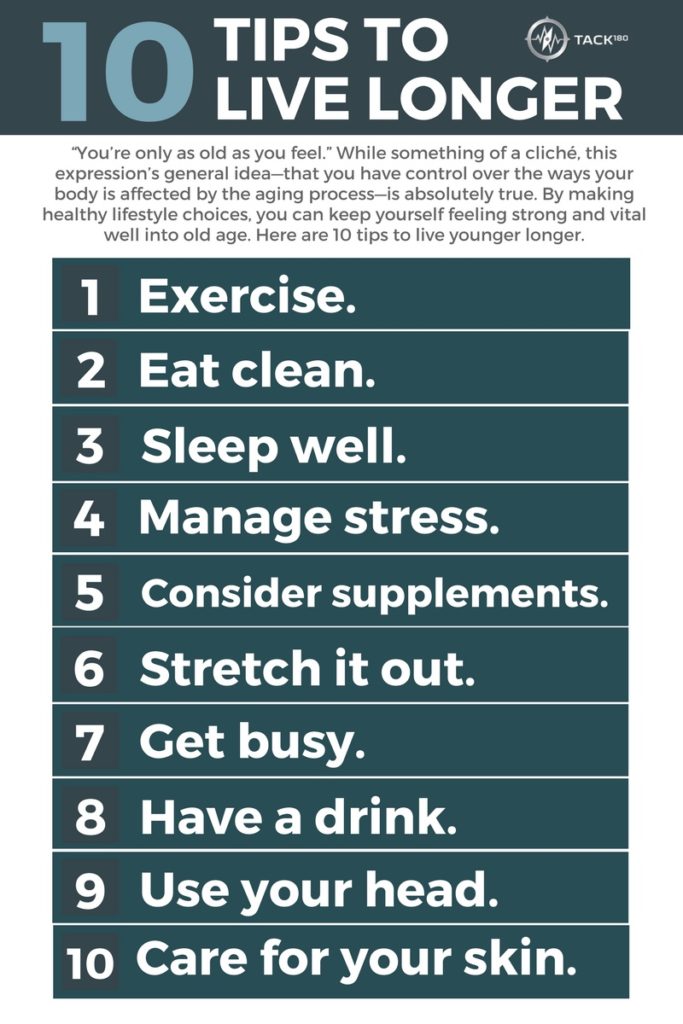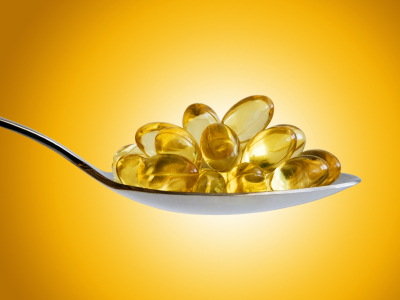Top 10 Best Anti-Aging Supplements for Men (Revised 2019)
Posted on: March 30, 2018
It’s a fact of life that no matter how young we feel on the inside, our appearance changes as we age. While nothing short of plastic surgery can reverse this natural progression, there are things you can do to slow it down. I wrote about my top 10 best anti-aging supplements for men below, and I’ve added five more that can help you maintain your youthful vigor.
Zinc
When it comes to key nutrients for men’s health, zinc is near the top of the list. Found in the prostate gland and elsewhere in the body, this essential trace mineral plays a role in immune function, cell division, wound healing, and more. It also affects testosterone levels, and zinc deficiency has been linked to hypogonadism (low testosterone). Research suggests supplementing with zinc can help modulate testosterone levels, and it has also been shown to help with sexual competency and erectile dysfunction (this is why zinc is also on my list of top 5 supplements to increase sex drive). Science shows testosterone supplementation may combat Immunosenescence, age-related changes in immune cells that can lead to inflammation and increased infection risk. Life Extension reports zinc is also critical for prostate health, protecting against tumor development. I recommend supplementing with 20 mg along with 2 mg of copper, to keep the body’s natural ratio of the two minerals at 10:1.
Biotin
Supplementing with this B vitamin is often recommended for healthy skin and hair—both of which tend to lose their luster as we age. And we certainly all need more luster! In his book The Green Pharmacy Anti-Aging Prescriptions: Herbs, Foods, and Natural Formulas to Keep You Young, James A. Duke, PhD, suggests men who are losing their hair take biotin, claiming he’s seen studies where it helped with regrowth. According to Healthline, supplementing with biotin also may help regulate blood sugar levels in people with type 2 diabetes.
Hyaluronic Acid
This clear fluid found in your skin, joints, and other body tissues helps retain moisture and keeps things flexible. Since a lack of synovial fluid—of which hyaluronic acid is a component—in the joints can lead to painful stiffening, supplementing with hyaluronic acid may help relieve these symptoms. A 2016 data review examining the effects of hyaluronic acid on knee pain as assessed in clinical trials found hyaluronic acid supplements “provide at least some possibility for the treatment and prevention of serious conditions in patients with osteoarthritis exhibiting mild knee pain.” Hyaluronic acid’s strong moisture-retaining properties also make it a popular skin care ingredient. Topical use may “plump” skin and reduce the appearance of wrinkles. One study found formulations containing 0.1% of hyaluronic acid led to significant improvement in elasticity and hydration after 60 days of use compared to a placebo.
Flavonoids
These phytonutrients found in fruits and vegetables are touted for their antioxidant and anti-inflammatory powers. In addition to reducing your risk of heart disease and other chronic health concerns, flavonoids may help prevent the weight gain that often comes with aging. Dr. Mercola explains that “middle-aged spread” doesn’t have to be inevitable. He cites a study of 124,000 people where those with the highest flavonoid intake gained the least amount of weight as they aged. Dr. Mercola also emphasizes the ability of flavonoids to reduce erectile dysfunction, pointing to a 20-year Harvard University study showing men who ate flavonoid-rich foods three times a week experienced less erectile dysfunction as they aged. Foods high in flavonoids include tea, citrus fruits, berries, and most green and red vegetables.
Turmeric
As I explain here, turmeric is a popular supplement because it contains a powerfully anti-inflammatory and antioxidant active constituent called curcumin. Among many other applications, turmeric has been shown to help reduce symptoms of a problem that often plagues people as they get older—arthritis. In an Italian study of patients with osteoarthritis in one or both knees, those who took a turmeric formulation for 90 days showed a 58 percent reduction in overall pain and stiffness compared to controls. They were also able to reduce their need for painkillers such as aspirin and ibuprofen by 63 percent compared to patients on conventional medical therapy alone. Turmeric is also gaining popularity as a topical anti-aging ingredient. Two different split-face studies found a moisturizer containing turmeric extract significantly improved the appearance of fine lines, wrinkles, and age spots.
Eager to learn more about how supplements can keep you performing at your peak? Check out Dr. Spar’s Top 10 Supplements for Men guide by clicking the button below. These all natural supplements will help reduce disease risk, accelerate recovery, and improve performance. You can also purchase the supplements from top-quality brands via the links within.
DOWNLOAD NOW
What is Tack180? Watch the video below to learn more:
Ready to take the next step? Find the right program for you and get started today:
GET STARTED
Top 10 Best Anti-Aging Supplements for Men (10/18/17)
Still searching for that elusive fountain of youth? There may not be a magic pill to keep you young, but supplements can help. Here are my top 10 best anti-aging supplements for men.
1. CoQ10
This antioxidant has proven to be particularly beneficial for improving the appearance of aging skin. A clinical trial in Japan found adults who took CoQ10 reported a reduction in wrinkles, and a 2016 study found an association between 150 mg of CoQ10 for 12 weeks and reduced wrinkles around the eyes and mouth compared to placebo.
2. Vitamin C
Another antioxidant, vitamin C also helps your body produce collagen. It can protect against as well as repair sun damage, brightening and evening your skin tone. One study found participants who applied a topical vitamin C solution for 12 weeks experienced a reduction in fine lines and wrinkles. Other research indicates it may reduce age spots.
3. Glucosamine
Commonly used to treat arthritis and other joint problems, this substance—extracted from shellfish like crab and lobster—also shows promise as a wrinkle fighter. It may help repair sun damage and studies show it boosts collagen production.
4. Vitamin E
Vitamin E is a potent antioxidant that works at a cellular level to protect skin from free radical damage. It’s often added to sunscreens because it helps prevent UVB damage. A study conducted on hairless mice found both dietary and topical vitamin E effectively protected skin from some of the early damage induced by ultraviolet radiation. Vitamin E works especially well when paired with vitamin C.
5. Collagen
As you age, the collagen in your skin does too, which can lead to sagging, wrinkles, and other issues. Research shows taking collagen can help. In one study, oral collagen peptide supplementation significantly increased skin hydration and collagen density, among other anti-aging effects. In addition to keeping skin and joints healthy, collagen may also help prevent Alzheimer’s. Recent research suggests a specific collagen, collagen VI, can protect brain cells against amyloid-beta (Aβ) proteins associated with the disease.
6. Fish Oil
The omega-3-fatty acids, EPA and DHA, in fish oil help your blood flow freely, improving vitality by giving skin and even hair a more youthful appearance. Fish oil also reduces inflammation that can lead to many diseases of aging, including brain aging. Additional benefits of fish oil include improved mood and lowering “bad” LDL cholesterol. The recommended dose is generally 2000 mg, but check with your doctor to make sure of the best dose for you.
7. Resveratrol
This compound found in red wine is sometimes called “the longevity molecule” because it has been shown to lengthen the lifespan of many different animal species. Research also suggests resveratrol can help prevent several diseases—including diabetes, Alzheimer’s, and heart disease—related to aging. And it has been shown to improve older skin. In one study, subjects who took a supplement containing resveratrol for 60 days had smoother skin, shallower wrinkles, and significantly decreased age spots.
8. Vitamin A
Several studies show topical vitamin A reduces wrinkles and other skin damage associated with aging, which is why retinol (a form of vitamin A) is one of the only wrinkle treatments approved by the FDA. A randomized, double-blind study conducted in 2007 found topical retinol improved fine wrinkles associated with aging, and other research supports this finding. HuffPost reports using retinoids is dermatologists’ second-favorite piece of advice behind wearing sunscreen.
9. Vitamin K
This nutrient found primarily in leafy greens can help keep aging skin from thinning, minimizing the appearance of bruises and veins. Science suggests it may also help prevent Alzheimer’s and other age-related diseases. As Dr. Nicholas Perricone points out in his book Dr. Perricone’s 7 Secrets to Beauty, Health, and Longevity, vitamin K is critical for bone health as well.
10. Acetyl-L-carnitine
I like this one so much I put it on my list of 5 supplements everyone should take. A dose of 1000 mg of acetyl-l-carnitine every day can improve your cells’ ability to make energy, translating to more energy for living your life. In addition, it can help keep you sharp as you get older. One study found supplementing with acetyl-L-carnitine improved aged brain function in rats.

About Myles Spar, MD
Myles Spar, MD, MPH is board-certified in Internal Medicine and in Integrative Medicine. As a clinician, teacher and researcher on faculty of two major medical centers, he has led the charge for a more proactive, holistic and personalized approach to care that focuses on cutting edge technology and preventative care. Dr. Spar has traveled with the NBA, presented a TEDx Talk, appeared on Dr. Oz, and been featured in publications such as the Men’s Journal and the Los Angeles Times.












